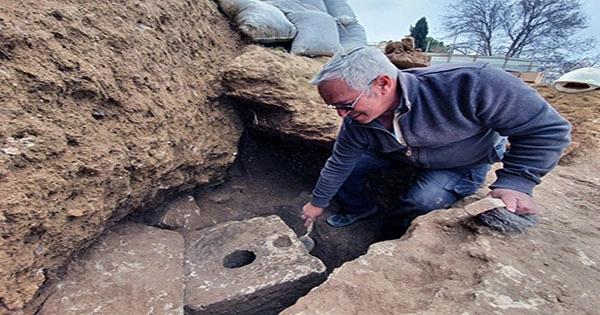Even though the great monarchs of the Biblical era lived in Jerusalem, recent study shows that the city’s elite were afflicted with parasitic worms. Archaeologists uncovered various species of intestinal parasite eggs in soil samples from a cesspit beneath a 2,700-year-old stone latrine, suggesting that hygiene and sanitation in the holy city may not have been up to standard. The scientists write in the International Journal of Paleopathology “a toilet was a sign of wealth, a private facility that only the wealthy could afford,” and that users of this basic bathroom were likely persons of rank.
The Biblical bog appropriately surrounded “amazing architectural components” and gives a unique glimpse into the digestive problems of Jerusalem’s aristocratic classes during the late Iron Age. It was located in a sumptuous complex near the location of Armon Hanatziv in southern Jerusalem. The researchers discovered eggs of roundworms, tapeworms, whipworms, and pinworms in the soil samples using a light microscope, indicating that the rich citizens of Jerusalem were likely afflicted with a variety of ailments.
The most common worms in the cesspit were roundworm and whipworm, which both transmitted by feces. These worms are thought to have spread because “inadequate disposal of fecal material, contamination of food and water supplies with fecal waste, and the use of human feces as field fertilizer are common,” according to the researchers. Tapeworms, on the other hand, were the second most common parasite, indicating that they had eaten undercooked or filthy beef or pork. Pinworm was also found, albeit it was less common than the other parasites, and it is said to have caused “severe anal itching” in rich houses.
“These are resilient eggs, and under the peculiar circumstances offered by the cesspit, they lived for over 2,700 years,” research author Dr. Dafna Langgut said in a statement in response to the unusual results. “Intestinal worms are parasites that cause stomach discomfort, nausea, diarrhea, and itching, among other symptoms.” Some of them are particularly hazardous to children, causing malnutrition, developmental delays, nervous system injury, and even death in severe circumstances.”
Because of the absence of modern treatment, it is doubtful that those who infected with these parasites would have been able to get rid of them, which implies that many people in ancient Jerusalem likely carried these worms for the rest of their lives. Even those who were fortunate enough to have their own private bathroom were unable to avoid this very horrible fate, as this study indicates.














